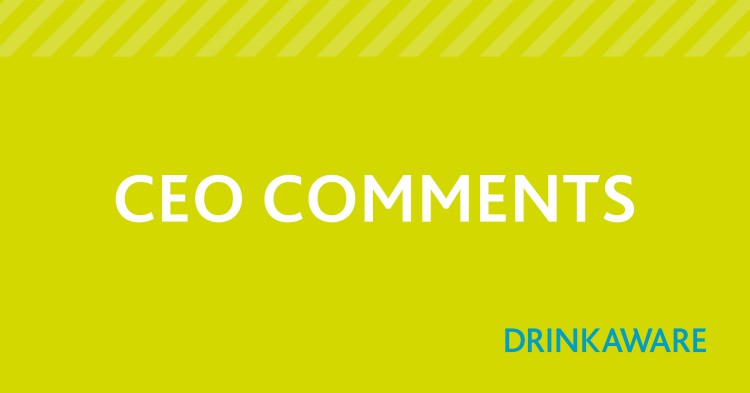In recent months both the HSE and Charity Regulator have referenced the need for greater trust as a strategic priority going forward. Indeed trust is in short supply amongst many societal institutions like the Garda, EU and civil service whose levels are 62%, 55% and 53% respectively (nfpSynergy).
Trust is complex, with many dimensions. And as an organisation that benefits from significant public trust (cited by 80% of the general public as the ‘go to’ source for trusted information on alcohol), Drinkaware is very mindful of these dimensions, and how we can both maintain and sustain them:
Cognitive trust requires us to be predictable. Drinkaware is relied upon to provide relevant pragmatic information on alcohol, so we meet the public’s expectations on a daily basis. We also need to be competent. We work hard to ensure that the utility of the programmes we produce, coupled with the credibility of the team, means our programmes and resources are effective and valued. And we continually check this because we measure everything we do.
Drinkaware also looks to earn the general public’s affective trust through our integrity and our benevolence. What this means, is that our motives – the prevention and reduction of the misuse of alcohol – are unambiguous, consistent, and in keeping with the public’s. In addition, and very importantly, our activities, our finances, our governance, are all transparent.
Drinkaware’s charity status (RCN: 20204601) is explicit acknowledgment of this integrity, benevolence and transparency, framed in what the Regulator refers to as “charitable purpose”. And whilst our work is the same whether we’re a not-for-profit or a charity, the recognition is important as an additional contributor to our trust.
Trust is the engine that drives good relationships, and mutuality is critical. Mutual respect is what motivates us to listen carefully to what the public are saying. Our relationship with Irish society is based on shared goals, shared values and also shared hopes. We know from our data that a growing number of people want to reduce or cut out their alcohol consumption and we see hope and positivity in the thousands that use our calculator do so.
For Drinkaware and for all charities, the value of trust is that it allows us to have real conversations, the ones that matter and the ones that are often difficult to have. Alcohol’s grip on Irish society and culture will not be loosened by overtly negative narratives, however much they may be rationalised. Rather the discussions need to be exactly that, a discussion and not a direction. Believe it or not, people are actually ok with change, it’s being changed they don’t like (Peter Senge). And scaremongering is another thing disliked so fear tactics typically result in inaction (Tali Sharot).
At Drinkaware therefore, we focus on being inclusive and empathetic. Where there is trust there is also vulnerability because when we trust someone we open up ourselves to them. But the payback is that, unencumbered by bias, sceptism, etc., conversing with trust helps the right decisions to be made. And Drinkaware’s modus operandi is to support people to make the right decisions regarding alcohol.
A final but less considered turnkey in trusted relationships is mutual dependence. It may be explicit or implicit but organisations do not exist, nor can they succeed, in a vacuum. We are all inter-dependent. We derive benefits from each other’s activities and it is right and fitting that we do so. Because addressing a societal and cultural issue of the magnitude of alcohol misuse, requires a multi-faceted and collective approach. Only by the majority of actors pulling together, undoubtedly in different ways but in the same direction, can we create the change we all desire.


